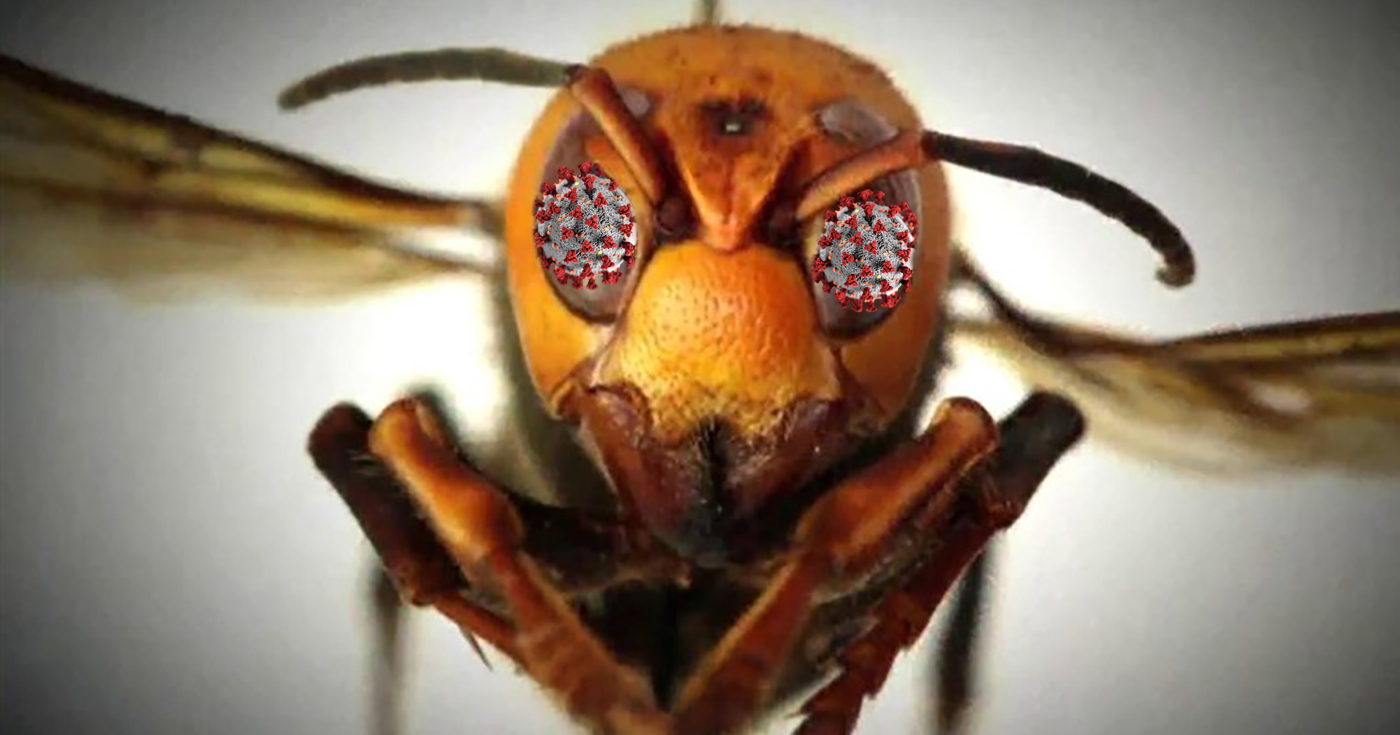Atlanta, GA — The Centers for Disease Control or CDC issued new guidance this week about the so-called “murder hornets” currently invading parts of the United States. The world’s largest hornet, a 2-inch killer dubbed the “Murder Hornet” with an appetite for honey bees, is just now starting to emerge from winter hibernation.
“These aren’t your typical asshole meat bees,” said Dr. Phillip Hansen of the University of Washington’s Bee Study Center, “they are giant hornets, many as long as an inch long in the body, not including their inch-schlong stinger. They will eat your face given a chance. And then sting your dead body out of spite.”
However, studies are starting to reveal that the Covid-19 pandemic may be problematic to this useless hornet species who make shit for honey.
The WHO and CDC are currently considering whether a hornet sting may be the first widespread test the greatest country in the world could muster. They would have a hornet sting a person, isolate it, and wait for it just to die or not. If it doesn’t die, they take it out of its container and squash it while calling the stung patient to let them know they are not infected.
“We’re not recommending that people trap the hornets by themselves at this time,” continued Dr. Hansen, “but if they do, we’d like them to post pictures to our Instagram account and reach out to us. The hornets are very dangerous, but they’re also an excellent, what we’re calling, bee selfie opportunity. Just be careful out there.”
As for the impact on COVID-19 on the aggressive Asian insect, the current research is murky at best. Most of the COVID-19/hornet studies have come out of China, which officials warn may not be accurate due to the lack of transparency standards in the traditionally authoritarian society. But Dr. Hansen seemed optimistic.
“Well, it’s hard to test these hornets because they won’t stay still long enough to inject with the [corona] virus. Imagine trying to hold them down long enough to get it in them. They’re twisting and turning, and let’s face it; they get pretty angry when you try to stick them a needle. So suffice to say, it’s tricky. But from what I’ve seen, COVID-19 seems to slow them down.”






